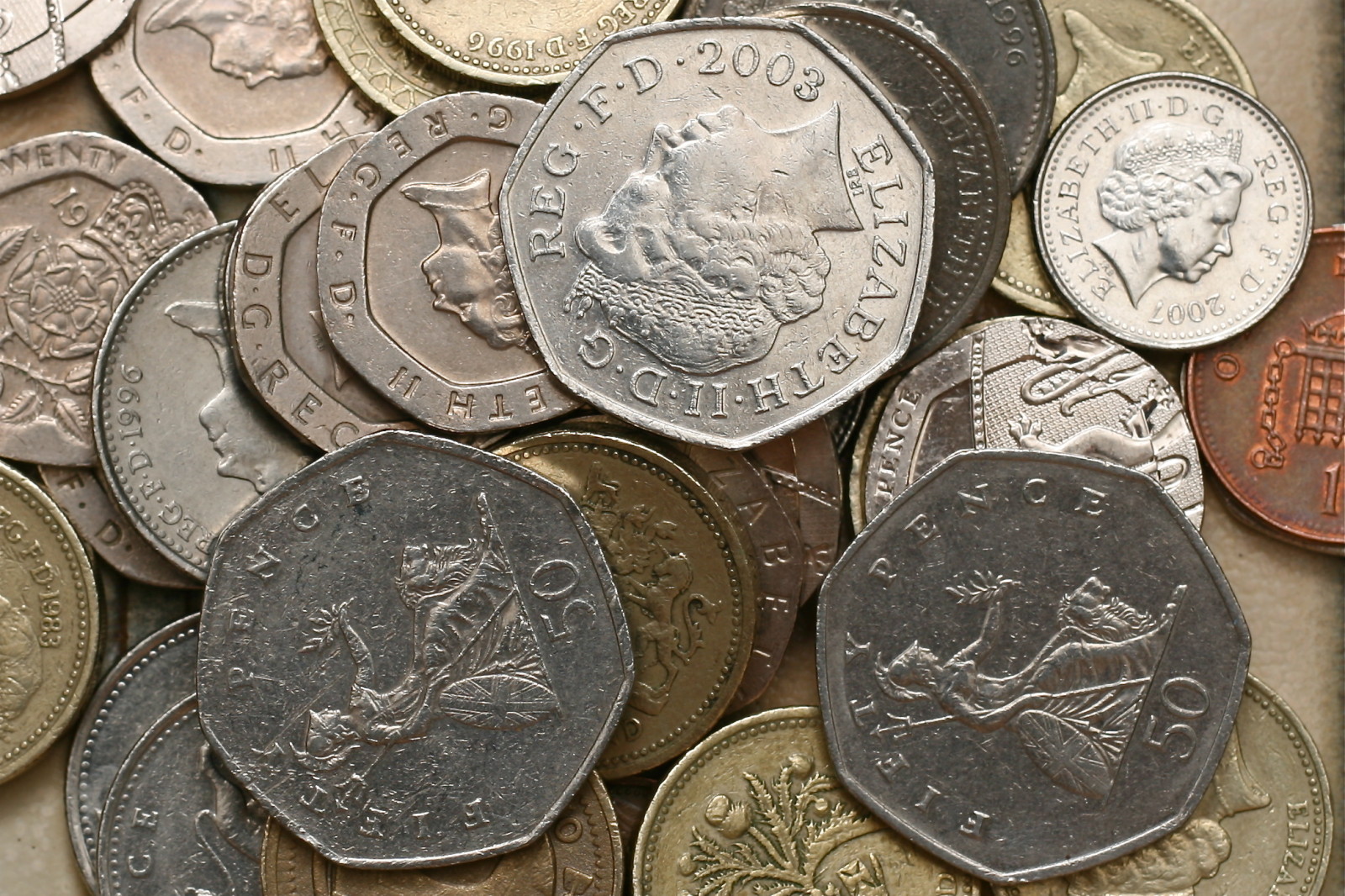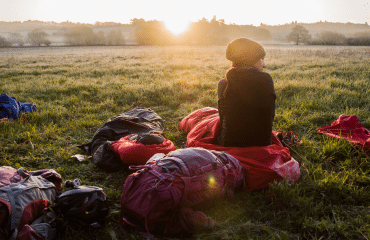A lack of money, or a perceived lack of money, is one of the chief laments I hear from people who are dreaming of adventure but not actually out there doing that adventure. I want to offer a few concepts and a few practical suggestions about this most boring but important of topics for those planning expeditions.
First, a few relevant facts about money and me:
- Most of my journeys I have funded by myself.
- I’mm not rich, but I live a moderate lifestyle and I am willing to spend my money on adventures.
- I earn my income exclusively from my adventures and the stuff that spins off from that on this site.
- I’mm lucky in that I have a degree and a professional qualification. I know therefore that I’mll be able to find work throughout my life if necessary and therefore I’mm in a privileged position of not having deep, permanently pressing worries about money. That makes it easier for me to sound flippant about money; I don’t mean to belittle its necessity for people who are struggling in life.
- In a similar vein, I am one of the Top 1% Richest People in the World (see where you rank here). I appreciate the privilege of my birth and feel the pressure to make the most of my opportunities.
There are two ways to have enough money in life. Both apply to the adventure world too.
- Earn lots of money
- Don’t spend much money
My personal preference for adventures is to try to keep them in Category 2. In other words, I tend to save up my own money and then go off and do a trip that is cheap and within my means. When I set off to cycle round the world I had saved up £7000. That did not seem like enough money to get right round the world.
But I preferred to try rather than delaying my trip indefinitely until I had raised sponsorship or earned more money in order to make the journey more comfortable. So I just began. I lived cheap. I was hard on myself. I slept rough, ate cheap food, and dreamed of comfy beds and ice cream.
Other people (eg Mark) have secured sponsorship and thus cycled round the world with more cash than I did. That’s very nice, of course! But here’s the thing: it’s not necessarily necessary. The crucial thing for me as a young man was to make my first expedition happen. To stop being a dreamer and start being a do-er. And if that meant eating a lot of instant noodles, then frankly I couldn’t give a damn!
If you want this adventure to happen, you can make it happen.
I’mve walked across southern India for £500, packrafted Iceland and trekked the Empty Quarter for a couple of grand. One of my main reservations about beginning Adventure1000 last year was that £1000 felt like too much money to me: you can do so many great things on a budget like that.
If you want to do a long, gruelling, difficult journey, you can.
It comes down to will.
If you want to save up money, you can. (I’mm assuming that anyone contemplating a long adventure is in the privileged position, like me, of not being genuinely poor and struggling.)
It comes down to will.
So I’mm not going to try to teach you how to save money. If you want to do it then you will Google for ideas and you will stop spending money. It’s quite simple once you begin equating a beer in a pub with being the same as 24 hours cycling through the wilds of Africa, or a morning coffee with a couple of days of hiking through India. Imagine what journey you could do for £1000. Now think of the rubbish you could also buy for £1000.
The choice is yours…
It’s time to start saving!
Plenty of expeditions cost more than £1000, of course.
Rowing the Atlantic, heading to the Arctic: if these things tickle your fancy then you will probably need to find someone to sponsor that trip.
And, if I had £1 for everyone who asked me for tips on getting sponsors, then I’md be able to fund a trip or two myself!
So, here are a few thoughts on finding sponsorship for your adventure:
- Save yourself a lot of time: cold calling / spam emailing does not work. Use your personal network to help you get in touch with the person who holds the purse strings in the company you’re interested in. Ask your family, your friends, your friends families for possible contacts. Never stop asking, never give up.
- Don’t have a chip on your shoulder if your Daddy is not a director at Google. Most people have no useful connections or contacts when they begin. Do interesting stuff, make yourself more interesting, think laterally, ask widely. It’s not what you know, it’s who you know. Sad, but true. Get out there, do stuff, meet people.
- What’s in it for the sponsor? You’re trying to persuade somebody to pay you to go away and do the most fun thing you have ever done. What’s in it for them?!
- Why should anyone care? You need to be so, so clear about this. I get many emails from white, male, middle class young guys who are planning to do something cool but vague like “cycle round the world for charity.” It’s woolly, it’s been done before, it’s not exciting. Be unique (without selling out or becoming a silly gimmick. Integrity is worth more than sponsorship!)
- Be able to get someone excited about your trip very quickly. Master your elevator pitch. Pay money to get a professional-looking 1-page summary of your plan (in both portrait [print] and landscape [digital – PDF and URL]). This is your bait: its aim is to secure a face to face meeting, nothing more.
- Put yourself in a sponsor’s shoes. Answer these questions in a crisp, factual way in your mind before they ask them of you: why do you need so much money? What if you fail / die? Why should we support you rather than someone else? What’s in it for us?
- Think small, think local. Target local businesses, local media. Build your reputation up from the bottom.
- Getting sponsored kit is relatively achievable and realistic. Getting cash is much harder. Be aware of that.
- Publicity is the oxygen for sponsors: get up on the rooftops (Page 1 of Google) and start hollerin’! What can you offer them?
- Take a big map to any meetings you secure: it never fails to impress!
- Do you really need sponsorship? Rather than all the stress, slog, disappointment and loss of self-respect that goes into chasing sponsors, would you not be better off just staying in your job for a bit longer and saving up your own money?
How Much Money do you need?
The glib answer is “as much as possible”. Whether you are planning to do something cheap like walking across China or expensive like paddling the Tasman, you can virtually guarantee that the trip will cost more than you anticipate. So, whether you are self-funding or seeking sponsors, be sure to add a healthy buffer of extra cash into your calculations.
Googling people who have done a similar journey or who have travelled extensively in the region you want to visit will help you draw up an idea of the budgets. The fact that I can’t find the energy to write lots of helpful advice on this subject shows that it’s never featured too much in my planning. For my bike trip I just saved as much as I possibly could before my departure date, and then lived as frugally as possible after that. For my trips since then, they have all been within my financial means. I’mve been able to afford to do the trip, I’mve done them as frugally as possible, and I’mve therefore had a nice safety blanket in knowing that I can afford a bit extra if something goes wrong.
One element of a journey that people often neglect to budget for is what happens after the trip. Many people will not return home and slip instantly back into money-earning work. Returning home from a journey can be a difficult phase. You are exhausted but elated. Thrilled but fed up. Satisfied but suddenly directionless. Depression is common. So too is sloth and gluttony! Be sure to try to factor in a financial buffer until you get back on an even keel and begin earning once again. I always try to schedule a few talks for soon after I return from an expedition as it’s good for my self-confidence to remind myself that I can earn money and need not panic yet!
My conclusion on the money stuff of adventures is this:
- Save, save save
- Save more than you think you need
- When the departure date arrives, make sure you leave. You certainly won’t think you have enough money. Just go.
- Be realistic about seeking sponsorship
- If money genuinely is prohibiting you having your dream adventure, then do a cheaper trip instead. Don’t just do nothing.



Hi Alistair – I saved my £1000 last year and headed to Africa on a six week trip which Im stil reliving as I edit the video to document the experience now. To put this in perspective two years ago I earnt £45K a year and went into 2014 with no savings. Last year I earnt £14k and managed to go to Iceland, Andorra, S Africa, Malawi, Ireland and do some micro adventures. It is possible!
Brilliant!
This post is really helpful, especially the comments at the end about returning to normal life. I guess that is our (mine and my husband’s) biggest worry. It’s the horrible feeling that if we did the kind of trips we want to, when we return we’ll have to start again – new jobs, new house (we have a mortgage at the moment and would need to decide what to do with that), and other similar things. Even if we did a short adventure (a month, perhaps) we’d need to quit work, which seems very final. Instead we’ve booked two weeks off and are heading into Europe on our motorbikes in the summer. I suspect it won’t be enough but at least it’s something!! 🙂
Rather than setting a price point that may seem unreachable you could start with something within your means so you don’t have an excuse for doing nothing – then build from that. What could you achieve for £25?? …a micro-adventure or two, a discounted rail fare, a one-way Uber (because you are walking back). Do that then you can justify £50 then £100 and so on…